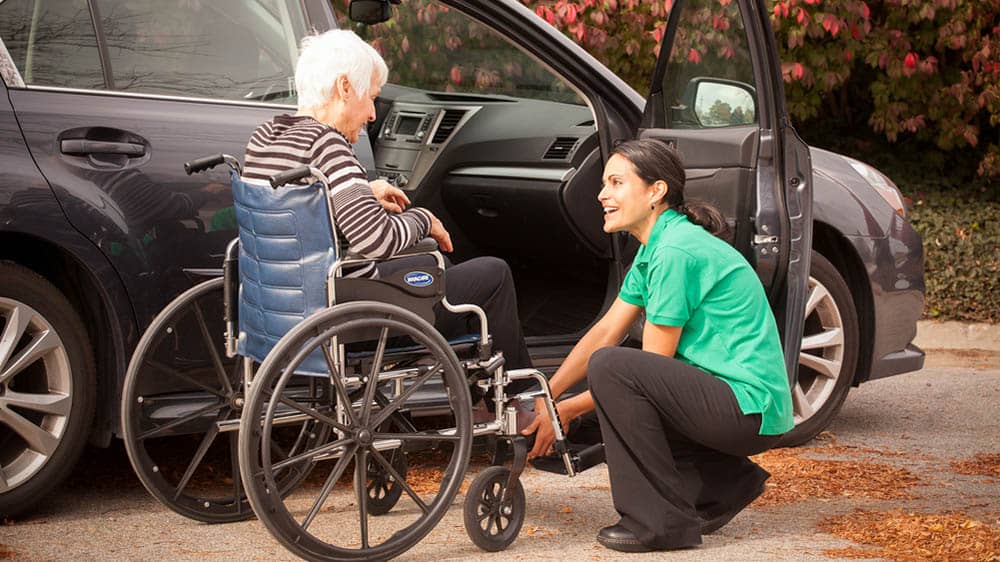

Making a Safe Transition From Hospital to Home
Coming home from a hospital or nursing home stay is such a relief—finally, back in one’s own space! But the transition involves more than just moving locations—it’s about the patient adapting to a new daily routine, managing health conditions, and perhaps dealing with new limits on what they can do.
A smooth transition can lower the risk of problems, prevent returns to the hospital, and help recovery happen faster. That’s why, if at all possible, patients should begin planning for their transition back home before they go into the hospital or nursing home.
How Home Care Helps
Home care services are essential in supporting recovery by complementing the medical care the patient may already be receiving. Here’s how they help:
- Helping with daily life: Home care workers help with everyday activities like bathing, dressing, cooking, and cleaning. This help is key to avoiding injuries and making sure the person’s basic care needs are met. For those managing chronic diseases, these tasks can become increasingly difficult, making the support from home care workers vital.
- Keeping track of medicines: Proper medication management is crucial to avoid negative reactions and ensure treatment works. This is particularly important for seniors with chronic conditions such as diabetes or heart disease. Home care providers can organize medications, remind patients about dosages, and watch for side effects.
- Support with movement and rehab: Physical therapy is often a key part of recovery. Home care aides can help patients keep up with exercises, get to therapy appointments, or set up in-home visits from therapists.
- Providing companionship: Recovering at home can be lonely, especially for those who live alone. Home care providers offer friendship, join in with social activities, and help keep the home a positive place, which is good for emotional and mental health. This support is essential for maintaining mobility and managing pain or other symptoms related to chronic conditions.
- Connecting with doctors: Home care workers can be an important link between the patient and their nurses or doctors. They can report changes in the patient’s condition, including medication side effects, emotional or mental health issues, and changes in pain or other symptoms.
How Home Care Works With Other Services
Home care easily complements other health care services that an older adult might need, such as:
- Home health care services. These services provide clinical care. For example, a home health care agency nurse may administer medicines, dress wounds, or provide medical exams, which are often necessary for those with chronic conditions.
- Hospital-at-home care. Some patients need even more than a visiting nurse. For example, their recovery may require medical equipment (and the expertise to use it). This level of care is provided by hospital-at-home programs.
- Hospice care. Hospice patients typically receive visits from a nurse, a social worker, and a spiritual adviser.
In all these cases, home care providers can offer nonmedical support by helping with household tasks, providing companionship, supporting the family emotionally, and taking the care recipient to medical appointments if that is part of their care plan.
A Valuable Part of the Care Plan
Adding home care services to an in-home recovery or care plan can be a big help for the patient and their support network. These services provide practical help and emotional support. What’s more, they can enhance the effectiveness of ongoing health care services, ensuring a safer, smoother transition. By creating an environment that supports healing and independence, home care services help older adults regain their strength and confidence at home. If you or a loved one is planning for recovery after hospital care, consider adding home care services for a more successful recuperation.
How Right at Home Can Help
RightTransitions® is Right at Home’s proprietary hospital-to-home program. Our team provides a wide variety of services, including nursing services, medication reminders, transportation, homemaking, and personal care. The Right at Home website offers downloadable checklists, tips, and other tools. You may also find helpful resources, including a FREE download of our Ways To Pay for In-Home Senior Care: A Guide for Families.
Use our office locator to find the office nearest you for more information.







